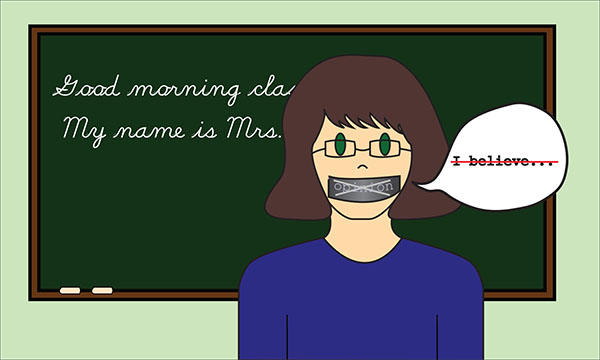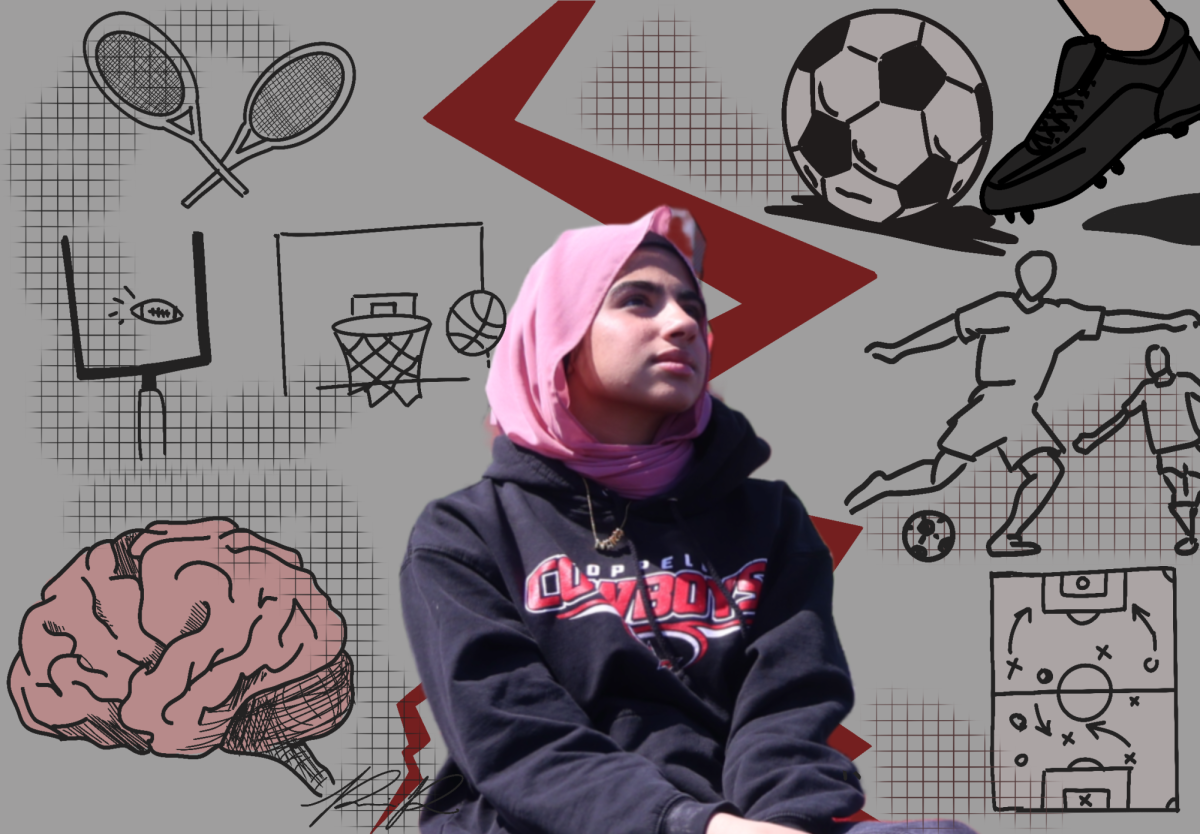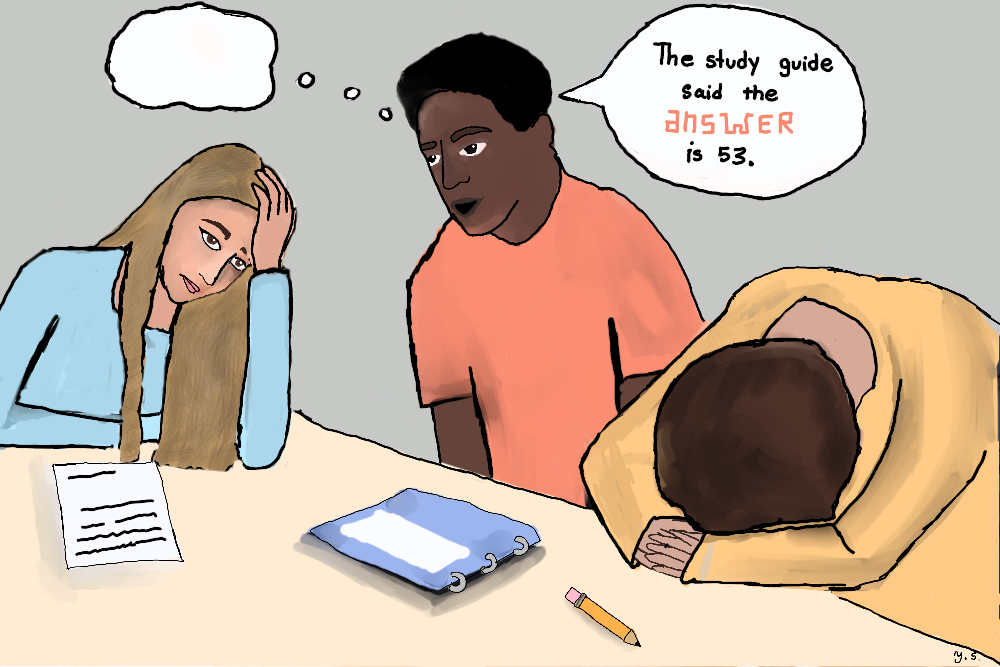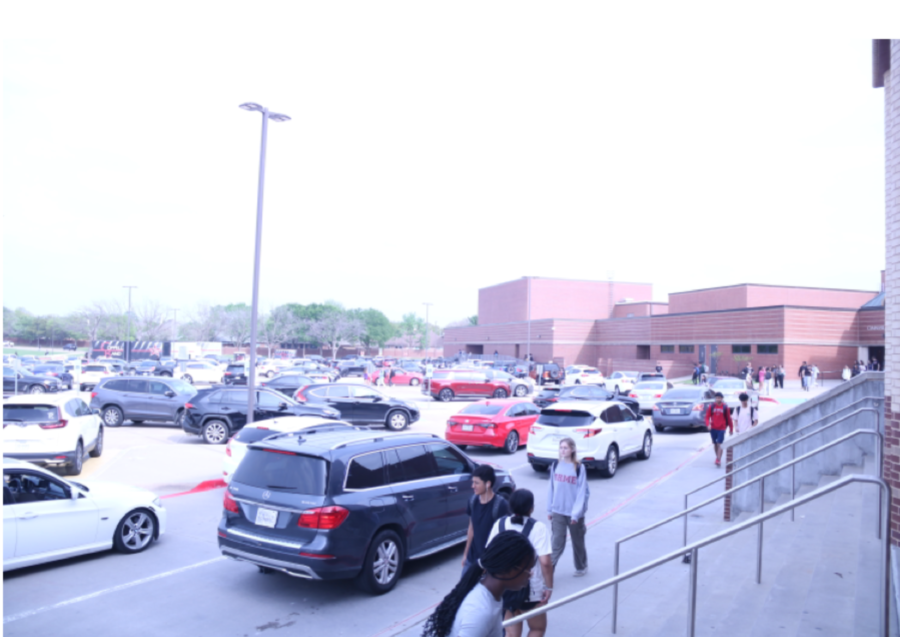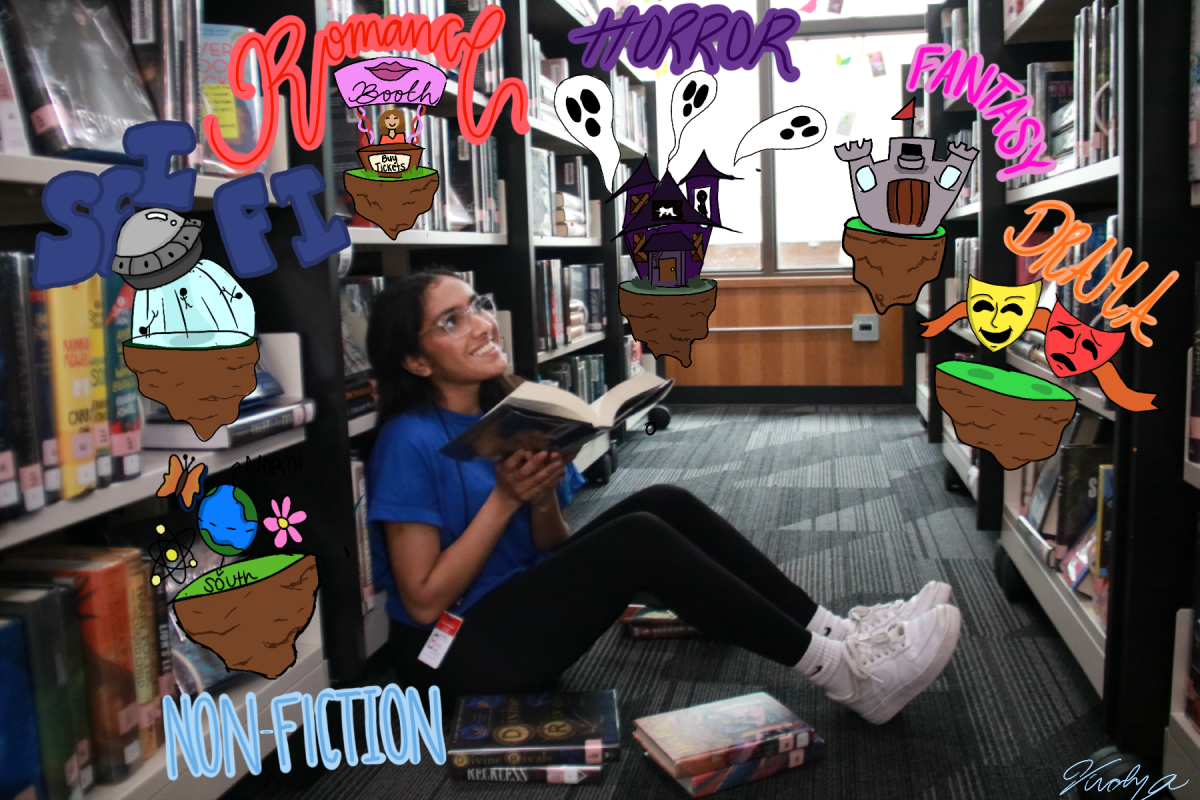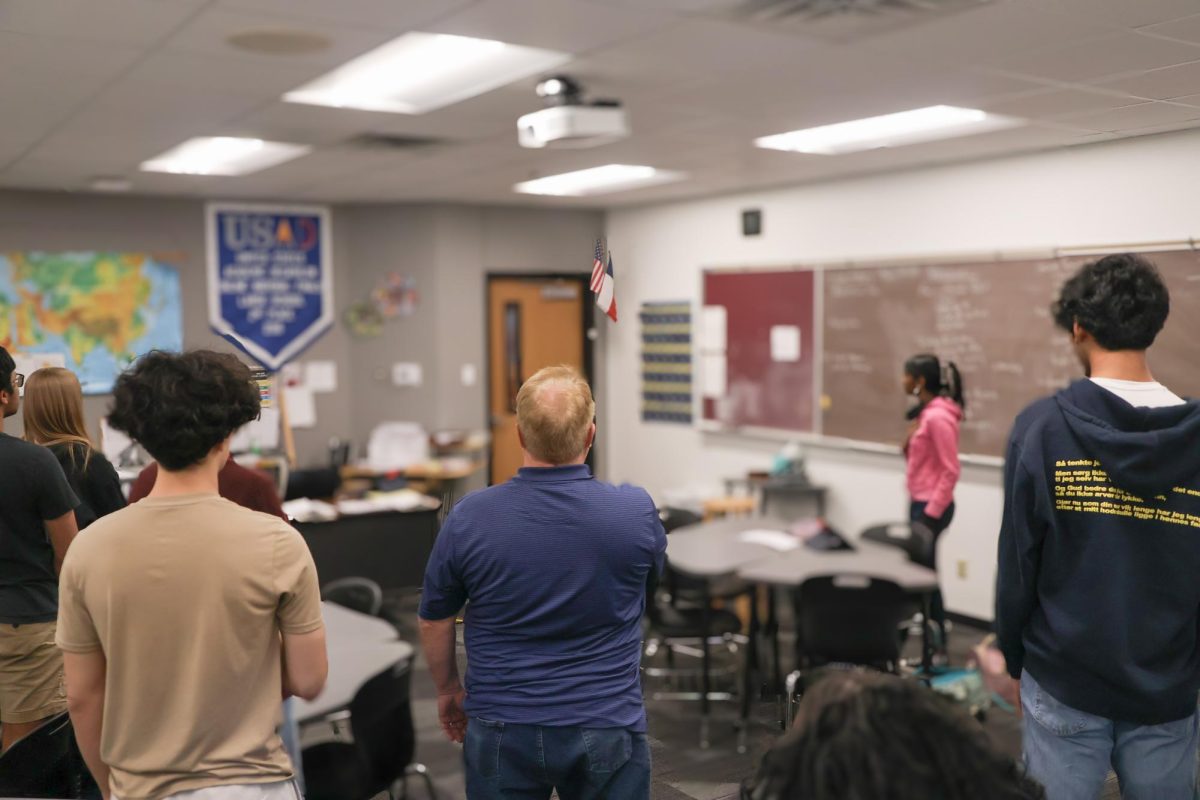By Corrina Taylor
Staff Writer
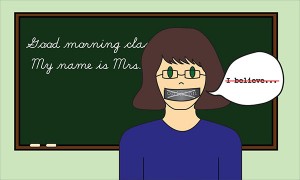
I lean forward with my elbow propped on my desk to support my head. My teacher has gone on another full-blown rant over the latest political mishap. The words blend together. Liberals and conservatives. Democrats and Republicans. This country was founded on the ability to choose your own beliefs and political views. Everyone is entitled to his or her own opinion.
As a student, I am entitled to my own opinions in the same way my teachers are. The difference is teachers shape the minds of their students, and what they say can greatly affect them. Over the years I have had numerous teachers who have felt the need to voice their opinion on every topic that comes up in class. Sometimes it is enlightening and inspiring – if it pertains to the lesson. If it is simply a rant about the presidential candidates or how our country is going down the toilet, I am less inclined to pay attention.
This is not an act of defiance against different political or religious opinions; it is simply a defense mechanism that I have built over the years. When a teacher begins to discuss their personal beliefs, I feel as though they are wasting time and breaching an unspoken law.
There should be certain boundaries between teacher and student; students should not be privy to the innermost personal beliefs of teachers. It ruptures the student-teacher relationship. The student is there to learn the subject, and it is the teacher’s job to relay that information in the best way possible.
I’m not saying conversation between students and teachers should be prohibited or ideas should no longer be exchanged. I am simply saying that in a classroom environment in which 20 or 30 kids are receiving a lesson from the teacher, the lesson should not include personal anecdotes.
As teachers, their obligation is to teach us the course, not to enlighten us on their worldly views. What they may deem helpful insight can actually be damaging to the student. As high school students, we are easily influenced, with the weight of peer pressure on our shoulders. Heavy bias from teachers makes it even harder for us to form our own thoughts.
Like many students, I was taught right and wrong growing up. If someone approached me with the intent of coercing me into something I know is wrong, I could easily say no to them. We were also raised to respect authority and pay attention in school, even if the teachers are talking about their own philosophies or ideas.
This compels us to listen to the rants and the lengthy opinions of our educators. If we keep hearing the same thing over and over it will eventually begin to stick in our head. The influence of teachers changes some students’ opinions simply because teachers are higher up and more knowledgeable. So what they say must be true right?
There is a reason that a student and a teacher would have diverse political views: they are very different in age and mentality. If a student were to challenge a political statement made by a teacher, it would disrupt the entire dynamic of the classroom. It would affect the other students in the room and strain the relationship between the student that argued back and the teacher.
If I was in a political argument with my teacher, I would no longer feel comfortable with them as my educator. The relationship between us would be awkward and I would no longer feel like I could come to them for anything.
In high school we are still young and we need to obtain the proper education before we can formulate our own political opinions. This should be the time to become educated on issues, so when students go to college and listen to their professor’s opinionated rants they are better prepared.
Back in my desk, the teacher has finally returned to the lesson. I glance at the clock. We have wasted 10 minutes. My teacher isn’t aware of the effect of the 10-minute rant. Now that their political viewpoints have been stated I feel the student-teacher relationship shrinking. This rant has led to prejudice in the classroom, and consciously or subconsciously, it has affected everyone.



